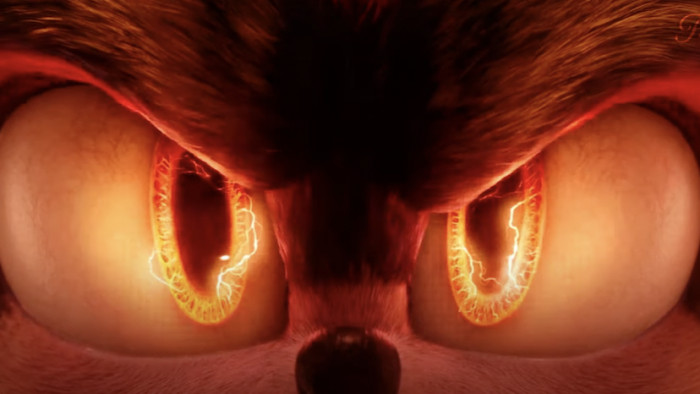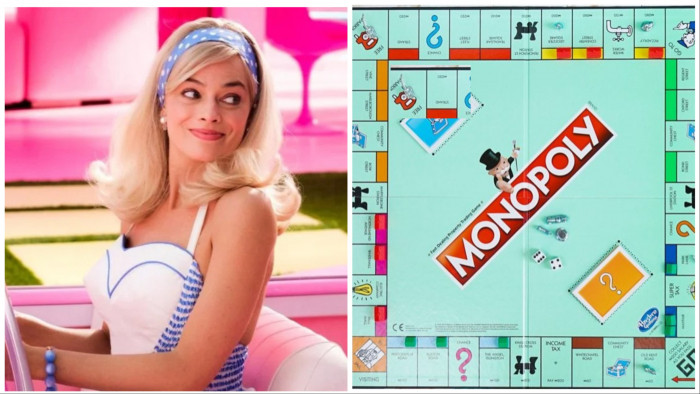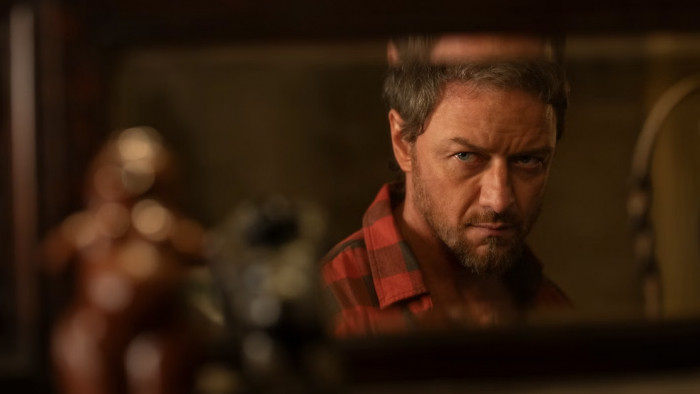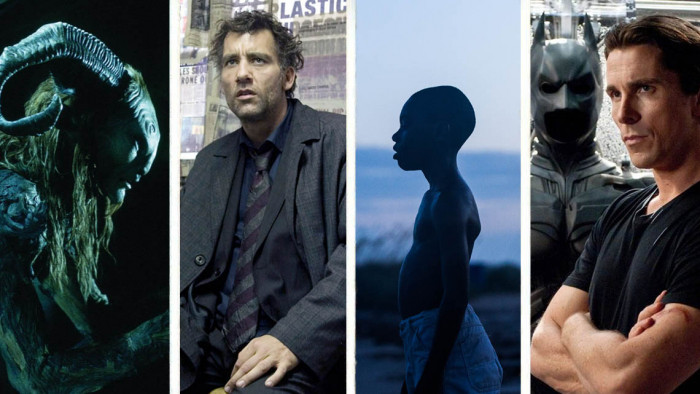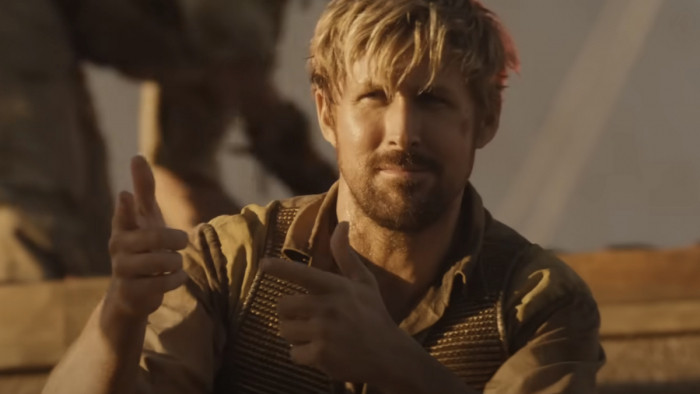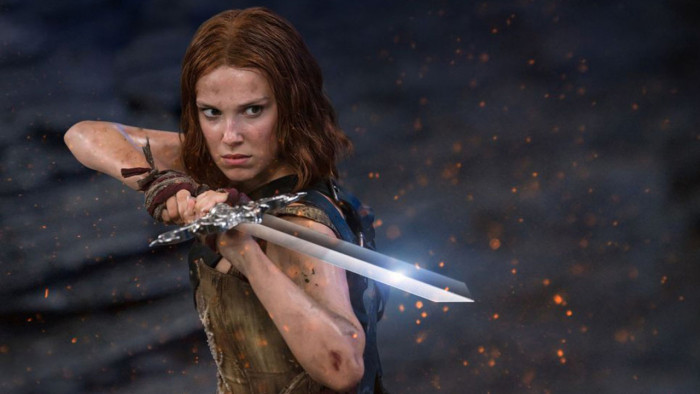You want to hear that Chadwick Boseman is just a regular brother, that a conversation with him is like chopping it up in the barbershop. It is. But the man is a myth unto himself. Boseman has played iconic black men such as Jackie Robinson, James Brown and Thurgood Marshall within the span of four years – in fact, it’s become a running joke that there’s not a famous black man Hollywood won’t cast him as.
On the set of his ShortList cover shoot, dressed down in sweats and bright sneakers, with Kanye West playing in the background, Boseman radiates importance. The first thing I want to know is why Hollywood’s go-to biopic man, the man who can inhabit some of Hollywood’s most engrossing real-life figures, has turned to the pages of comic-book lore for his current role – the king and protector T’Challa in Marvel’s hugely anticipated Black Panther. Turns out he really digs the comics.
“The character was already something that was on my radar,” Boseman says. “The comic book was something I had bought. Something I’d written in my journals about. [I was] coming up with stories. If they were ever to do it, there were stories I wanted to tell.” He claims it’s a twist of fate that Kevin Feige, president of Marvel Studios, called him up and asked him if he wanted to play Black Panther. I don’t really believe him.
Five years ago, Boseman was ready to dive full time into theatre, as a playwright and director, before he was cast in 2013’s 42 as Jackie Robinson, the first African-American to play Major League Baseball. Fast forward and the 41-year-old has built himself into a figure worthy of his own biopic. You don’t manage that without hustling; without some type of whisper campaign, without making sure your intentions are clear from the start.
To speak to Boseman, and to be in his orbit, even for a day, is like an afternoon in the barbershop with a handful of black men having conversations that range from race to politics to culture. Our time together in Los Angeles is a freestyling discussion on the racial dynamics in Hollywood and how we can overcome them. So how did Chadwick Boseman get here? He got here by manoeuvring himself through the seemingly nebulous Hollywood in order to make it suit his own purposes.
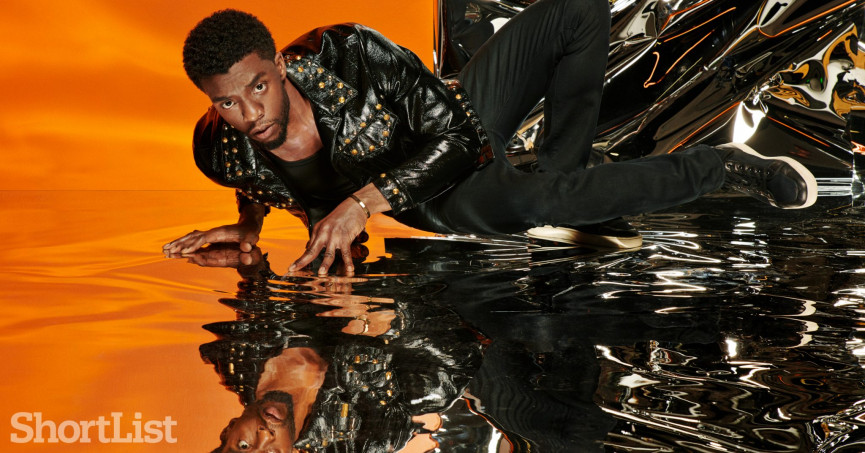
A new king
Even if you aren’t aware of Boseman’s radical depiction of those real-life icons, his latest role is hard to pass by. Whether you’re a hardcore superhero fan or not, it’s impossible not to notice that Black Panther looks and feels like nothing else in the Marvel universe. And when you’re bringing the first black superhero in mainstream American comics to the big screen, that uniqueness and dedication to its place in pop culture is crucial.
“It is a tribal need to have a leader,” Boseman tells me, waxing poetically about T’Challa, but also the black artists we look to for inspiration. “It’s a tribal need to have somebody that is fighting for you, that represents you well in the world, that speaks for you. I think when you see movies… it’s not just black people [with that need], it’s everybody.”
Boseman insists he’s done with biopics – but that the challenge of taking on the lives of significant men appealed to him for a reason. He turned down the role of Marshall, the first African-American Supreme Court Justice, at first, because he was a historical figure. “The challenge made me want to do it. If it was a fictional story and I didn’t know who he was, I would still wanna play that role.”
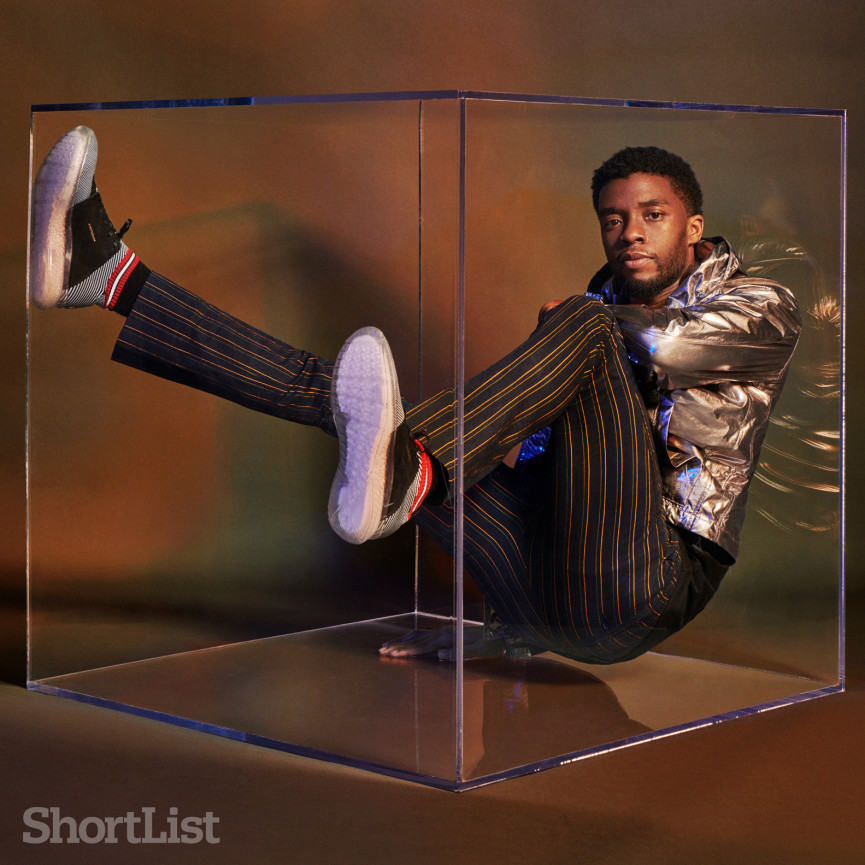
He’s someone who says he was never in it for the awards or the acclaim. Not really. Validation, he explains, isn’t so important to him. But there are exceptions. The night before we meet, he attended the NAACP (National Association for the Advancement of Coloured People) Image Awards.
“It’s important to have awards to celebrate black art,” he says, adding that he wants to celebrate and partake in Hollywood’s “black renaissance”, supporting the likes of directors Ryan Coogler and Ava DuVernay, or other actors such as Idris Elba, Daniel Kaluuya and Octavia Spencer.
“It happens in cycles. We [will] have a lot of success in black cinema, then it’ll taper off. There was a certain thing happening in the Nineties with Spike [Lee], [John] Singleton, Reginald Hudlin, the Hughes brothers… all that was happening. I think probably every decade you have one. Now, it’s a new decade, a new time. People like Ava are conscious of what their brands are.”
He means that if you’re more than an artist, you’re a brand, a leader that people look to on social media to influence and guide their aesthetic cravings. That’s the key to endurance. “You choose to stimulate, you create a certain type of work. I’ve chosen certain types of films. That’s my brand.”
He just saw the Winston Churchill film Darkest Hour, and Gary Oldman’s lauded turn as the former British prime minister. It makes sense Boseman is drawn to a biopic about a man who’s larger than life. He may be done with biopics, but the way he talks about Oldman’s performance, the lust is still there, his own urge to play men who are giants among us.
“It’s a great example of how people need a person to represent not just their political needs, economic needs, social needs… but their emotional fabric. Because that story’s about how to survive in a war when death is imminent. That concept is just as important in Black Panther.”
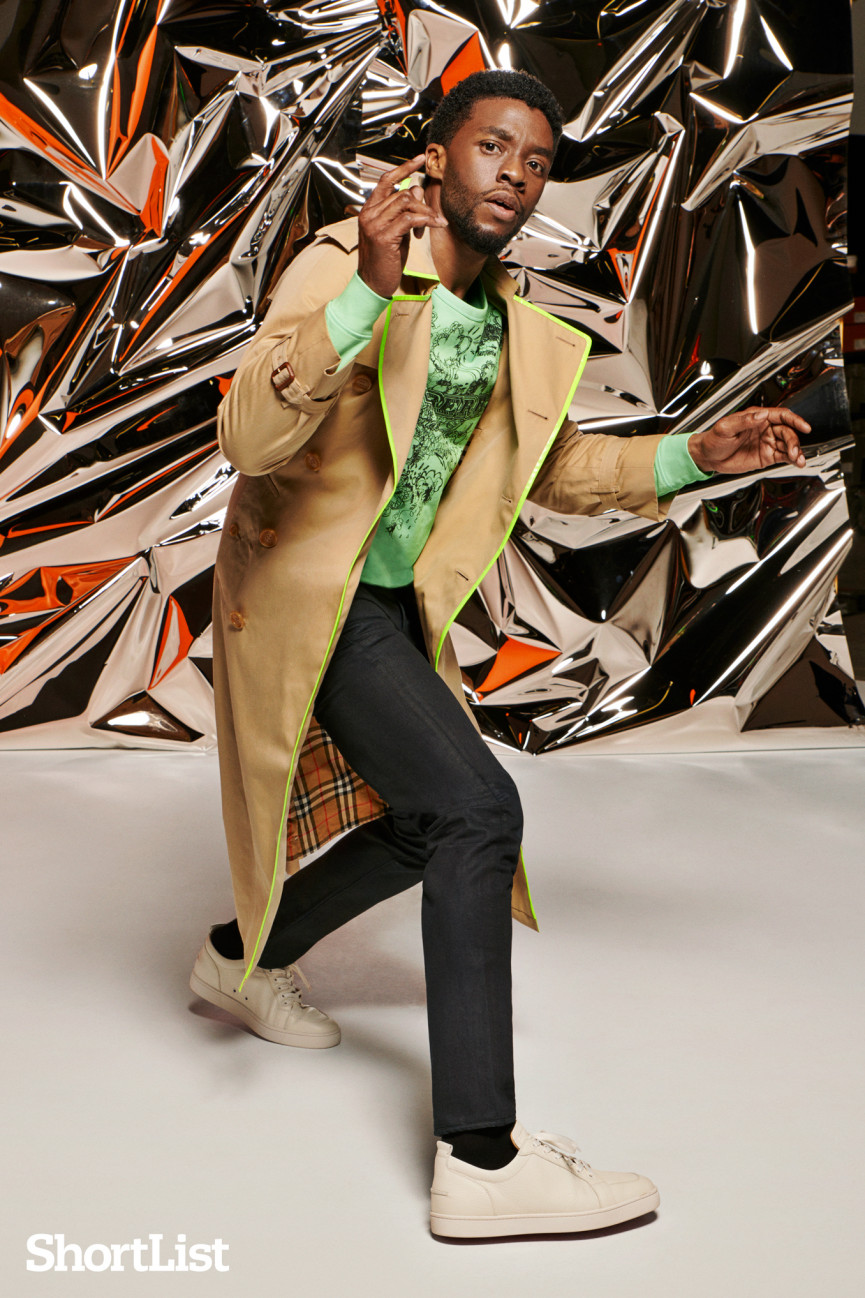
Roaring royalty
All this might make it sound like Boseman is all business, but it’s not true; he’s just feeling cerebral. He soon cracks up over the inherent problem that action-figure designers are facing now they need to make ones that resemble black actors (“They are getting close. But they need some new colour swatches”) and he gushes over Miguel’s latest album when it comes on the stereo. “I feel like he almost created a new style and nobody noticed it,” he says, laughing. “Then it was copied.”
I wonder if he ever takes time to enjoy the moment he’s in now, or if he’s always thinking about life in the grand scheme of things. “I definitely can enjoy the moment. It would be totally wrong to not relish this moment.” He explains, or rather insists, that he’s stopped himself from feeling like a failure if he doesn’t realise all of his goals in life. Goals like directing and writing scripts, but it sounds like convenient modesty for a man who’s in such high demand.
Because in the midst of all this, there’s an announcement about his next project, Expatriate, with Moonlight director Barry Jenkins. Boseman co-wrote the script, about a fictional plane hijacking in the Seventies, with his writing partner Logan Coles, and he’s starring in it, too.
Boseman definitely knows how to manifest power. Maybe it’s because he’s played plenty of awe-inspiring men, or he’s just destined for greatness himself. Maybe he’s read The Secret cover to cover. In either case, he’s managed to succeed as a black actor in an industry that rarely gives nuanced and, most importantly, worthy scripts that illuminate the hearts of black men.
And it’s not even the path he was on. “I was on a path writing, I was on a path directing. To me, the concept of trying to get a TV series or be in a film was another opportunity, but not the goal. As an artist, what is the next thing that will take me to another place? I wasn’t just an actor, I was an artist.” I ask him if he still feels like an artist, wrapped up in the big Marvel machine. “Sure,” he says. “I don’t think anything’s changed.”
That might come off as unaware, even guileless, but I believe him. I’d actually seen one of his plays, Deep Azure, when it was produced by the Congo Square Theatre Company in Chicago. Boseman’s play was full of audacity, versed hip-hop language that mirrored Shakespeare, and the project seemed like the intentions of a man who wanted everything from the world and would somehow go out and get it, no matter what Hollywood actually intends for black men. “We change the perception of what [Hollywood] is from the actions we take, the films we choose and what we choose to support.
“Sometimes, you can have this idea of, ‘Oh Hollywood, they always pick this and do that.’ What is Hollywood, really?” Boseman asks. “Where is it? It’s not a boulevard, it’s an idea.”
Black Panther is at cinemas nationwide from 13 February
Latest
Related Reviews and Shortlists



